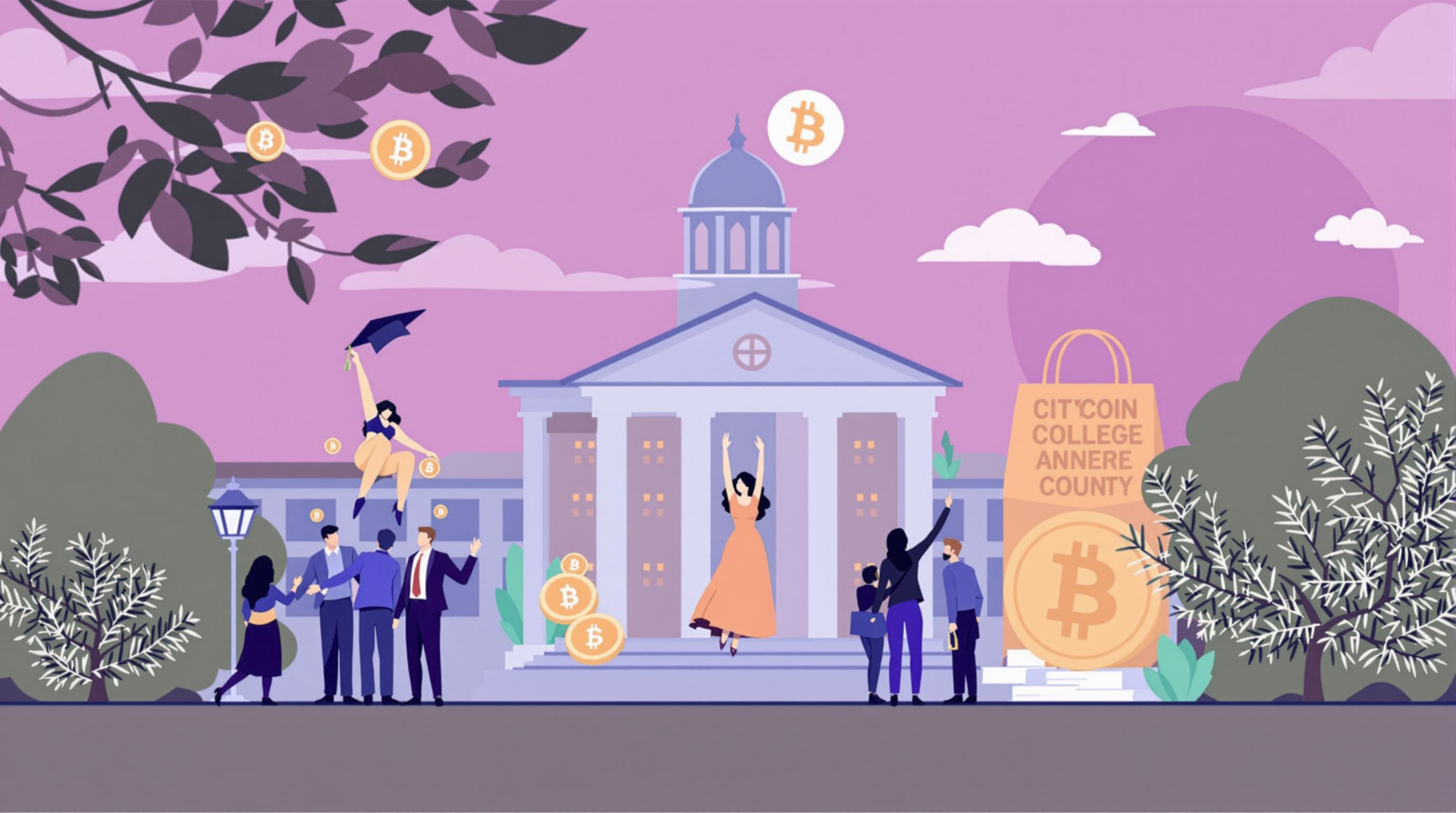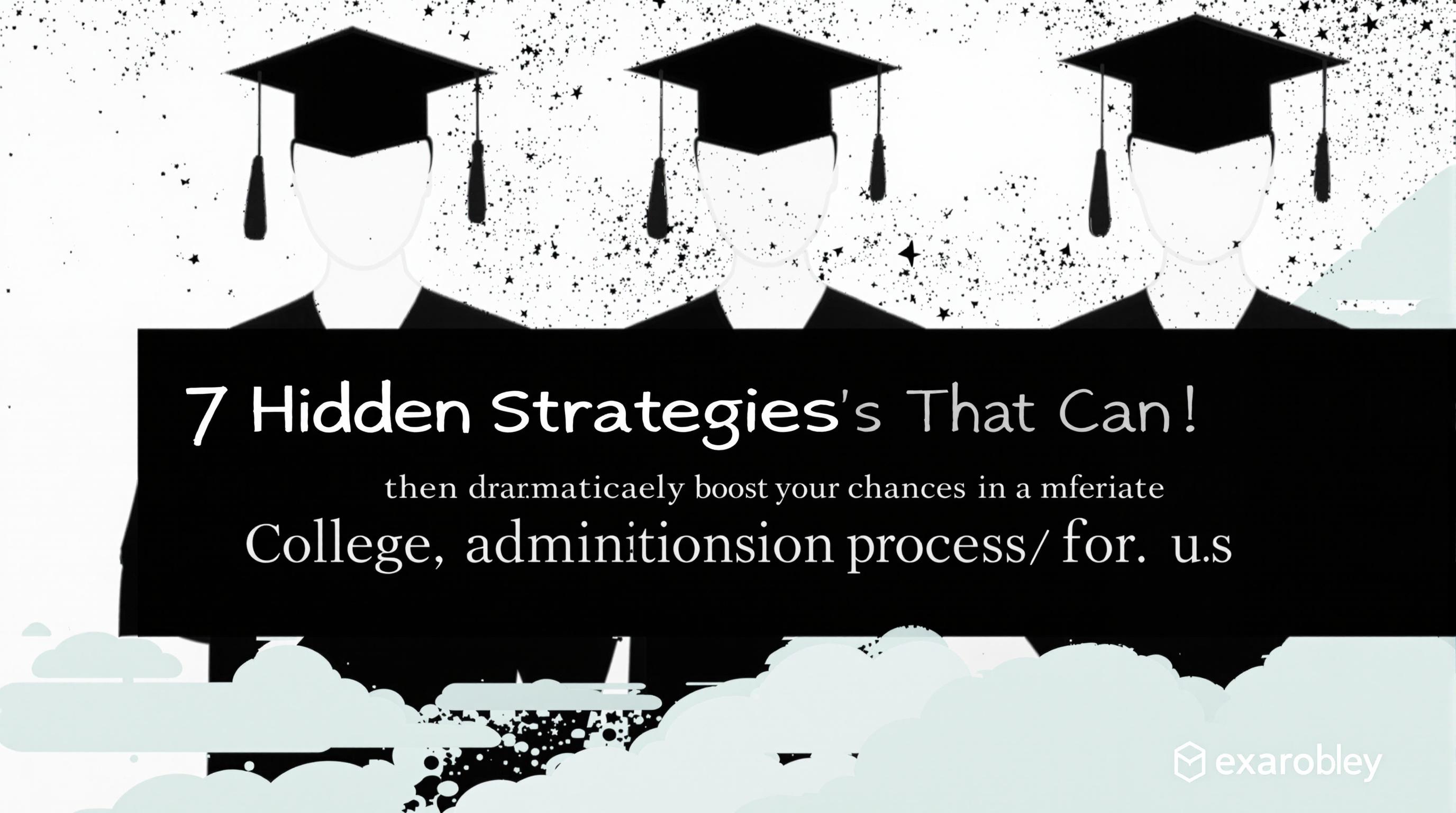Featured Articles
- 10 Unseen Factors That Could Transform Your College Admissions Experience in 2024
- 11 Surprising Trends in College Admissions: How Cryptocurrencies Could Influence Your Acceptance in 2024
- 7 Hidden Strategies That Can Dramatically Boost Your Chances in the College Admissions Process Today
- Beyond Grades: How Video Game Skills and Esports Experience Influence College Admissions in 2024
- "Beyond Test Scores: The Rise of Emotional Intelligence in College Admissions Decisions"
The Rise of AI Profiling: How Algorithms Are Shaping Your College Admissions Journey
The Rise of AI Profiling: How Algorithms Are Shaping Your College Admissions Journey
The landscape of college admissions is being reshaped by artificial intelligence, which now plays a pivotal role in profiling applicants. As algorithms dictate decision-making processes, prospective students must understand how these technologies could influence their academic futures.
The Evolution of College Admissions
Once upon a time, the path to college was a straightforward journey: grades, test scores, and a few thoughtfully crafted essays. Today, however, institutions are leveraging advanced algorithms to sift through stacks of applications, making the process more complex but also more data-driven and efficient.
How AI Creates Profiles
Imagine a scenario where a simple algorithm can scrutinize your application based on hundreds of data points, including your GPA, extracurricular activities, personal essays, and even social media behavior. Big data allows colleges to create a comprehensive profile of potential students, which significantly refines their selection process. Studies suggest that up to 60% of schools now use some form of predictive analytics in admissions, allowing algorithms to sift through applications faster and often more effectively than human readers (NACE, 2022).
The Human Element
But wait! Before you throw your hands in the air and bemoan the rise of the robots: the human element is still crucial in college admissions. Many institutions balance algorithmic decision-making with a holistic approach to assess whether an applicant would be a good fit for their community. This has led to an interesting fusion where data and human insight collide in making admissions decisions.
A Data-Driven World
The utilization of AI profiling reflects a broader societal trend. We live in a world where data drives decisions in almost every aspect of life, from your Netflix suggestions to Amazon’s targeted advertising. With the skyrocketing number of college applications—over 4 million applied in 2022 (National Student Clearinghouse)—it’s no surprise that colleges are adopting algorithms to streamline processes and mitigate bias.
The Good, the Bad, and the Ugly
As with all advancements, the application of AI profiling in college admissions comes with its pros and cons. Advocates argue that these methods reduce human bias and help institutions identify deserving candidates from diverse backgrounds. Critics, however, warn that reliance on algorithms can perpetuate existing inequalities and diminish student uniqueness. A report by the American Civil Liberties Union (2021) indicated that algorithms could inadvertently favor applicants from affluent backgrounds who can afford test prep courses, thereby skewing results and effecting social equity.
Case Studies of AI Profiling
To better understand the impact of AI profiling, let’s look at a few case studies. Stanford University, for example, has employed an AI admissions tool that analyzes personal essays to evaluate sentiment and uniqueness. Users of the platform reported that it helped identify some unconventional talents that human admission officers might have overlooked.
On the opposing side, Georgia State University faced criticism for its Oracle profiling system, which failed to account for non-academic factors that contribute to a student's potential. Despite its initial success in improving retention rates, concerns about bias and exclusion prompted the university to reassess and refine its method.
Social Media and Admissions
In a surprising twist, your Twitter, Instagram, and LinkedIn posts can also impact your admission chances! Some institutions have begun analyzing social media behavior to detect leadership qualities, creativity, or even interests aligned with the college's ethos. According to a study by Kaplan, about 35% of college admissions officers reported that they had consulted applicants' social media profiles. It’s a scenario that mixes excitement with anxiety for many students.
Building Your Profile in the Age of AI
With AI profiling becoming commonplace, what can prospective students do to build appealing profiles? First, focus on your strengths—academic and extracurricular. Being well-rounded helps you stand out in a sea of applicants. More importantly, engage genuinely online, portraying your authentic self to ensure algorithms capture your individuality.
Perspectives from Admissions Officers
The average college admissions officer, wearing multiple hats within their roles, offers varied perspectives on AI profiling. Many see it as an invaluable tool for identifying applicants who might otherwise slip through the cracks of traditional assessments. A survey by Inside Higher Ed found that 60% of admissions officers believe using AI tools allows them to better understand the potential of students who might not be "traditional" candidates.
The Future of Admissions
What does the future hold? As we continue to integrate AI into the admissions process, the lines between data-driven decision-making and human insight will likely blur even further. Questions about ethics, fairness, and candidate individuality will need to be at the center of discussions among educators and policymakers alike.
A Personal Anecdote
As a former admissions officer at a mid-sized university, I recall a particular student with a unique transdisciplinary interest in marine biology and art therapy. While his GPA was not stellar, his deeply personal essay about how ocean creatures inspired his artistic expressions resonated with our team. Algorithms may have favored pure academic metrics, but that authentic spark he brought—something the algorithm couldn't quantify—made a lasting impact.
Your College Journey Amid AI
In navigating your own college admissions journey, remember that while algorithms are on the rise, they cannot completely define you. Embrace the tools at your disposal, from personalized test prep to workshops on crafting compelling narratives. The future of college admissions is unfolding, and—much like the college experience itself—it may present challenges alongside remarkable opportunities.
Final Thoughts
As prospective students, engage actively with your application process. Familiarize yourself with how AI tools work and leverage them to your advantage. Be mindful of digital footprints you may leave—after all, a tweet or Instagram post may be the final piece in the puzzle that showcases who you are beyond grades and scores.
Ultimately, while AI is indeed reshaping college admissions, the heart of the process remains centered around the story of each individual. And while algorithms might churn through data effortlessly, they can never grasp the nuances and complexities of human experience.
Let’s embrace the new era of college admissions with informed minds and open hearts, ensuring our journey is authentic and reflective of our true selves.




